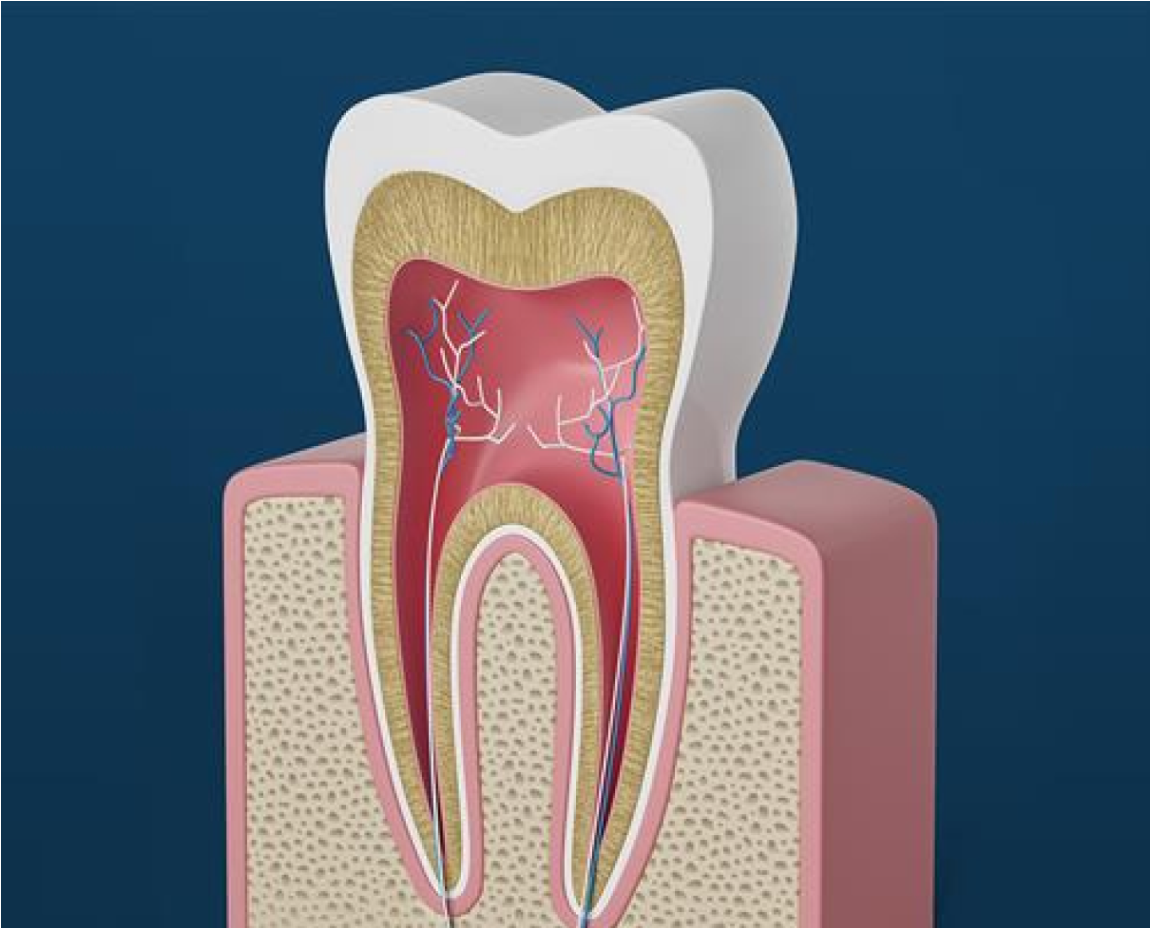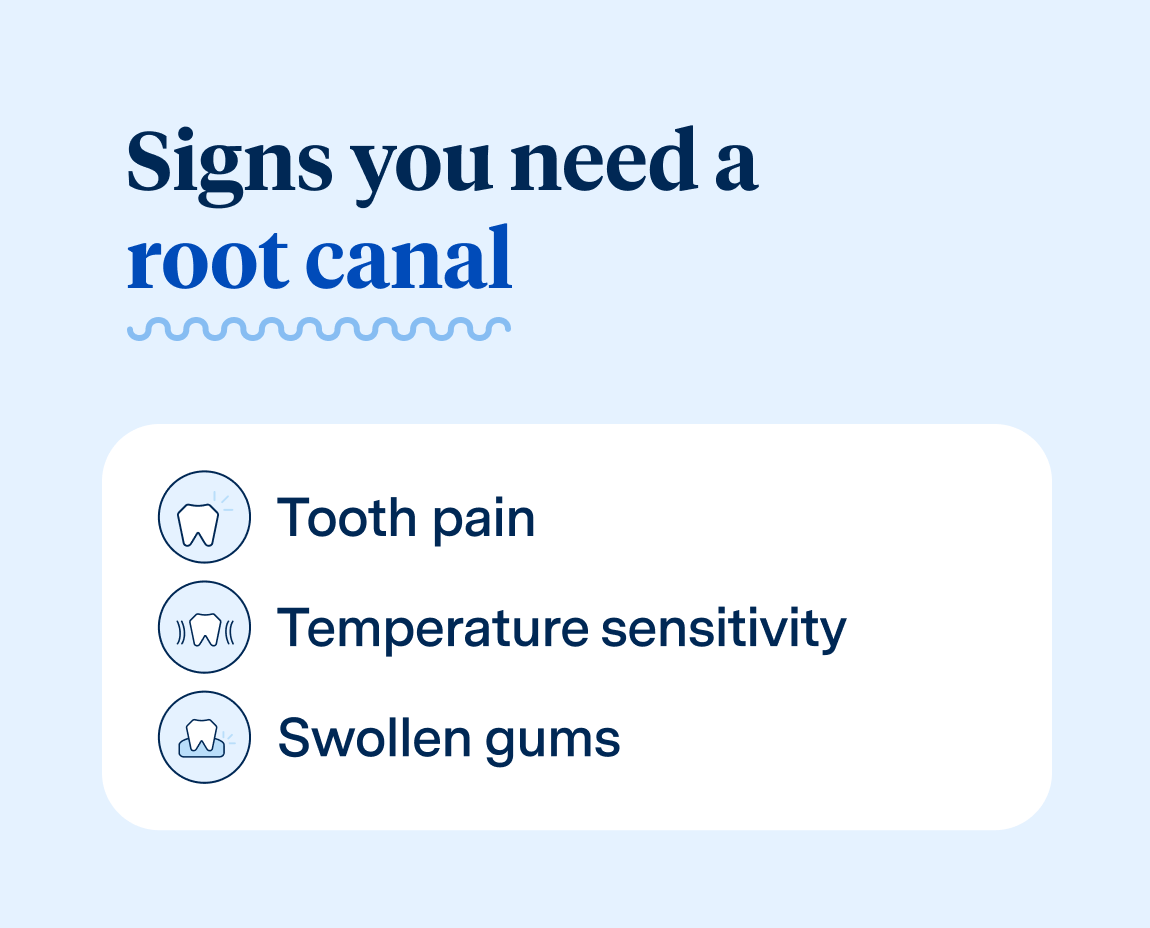How Long Does a Root Canal Take
Discover the duration of root canal treatment in 2023: how long it takes and what factors affect the procedure.
Everything you need to know about root canal treatment
This article will provide you with everything you need to know about root canal treatments and help you determine whether it’s the right choice for you.

What is a root canal?
A root canal is a treatment typically done to restore and save a badly decaying or infected tooth.
Before going into detail on what a root canal is, you first need to understand the make-up of your teeth. There are two main parts, the crown, and the root.
To really understand what a root canal is, you need to understand the basic anatomy of your teeth. Specifically, what’s going on under the crown, the area you can see when looking in your mouth.
The part of the tooth you can see is considered the crown, and the root is below the gum line in the jawbone. Within the crown of your tooth, there is a pulp chamber. That pulp chamber connects to the root of the tooth. This is what is considered the root canal.
The root canal contains dental pulp that is made up of nerves and blood vessels.
A root canal is needed when this pulp tissue becomes infected or when it is anticipated that treating a cavity will cause inflammation. During the procedure, your doctor will remove the affected or infected dental pulp from the canal.
Who performs a root canal?
Your general dentist can perform a root canal, or they may refer you to an endodontist.
An endodontist is a specialty dentist who has completed additional training that focuses on diagnosing tooth pain, root canal, and other treatments related to the tooth’s innervation.

Signs you need a root canal
To know for sure whether you need a root canal or not can only be determined by your dentist, but there are a few warning signs you might notice.
Not sure if you need a root canal? There are a few warning signs you can keep an eye out for to help you determine whether you need to schedule an appointment with your dentist. If you’re experiencing one or multiple of these signs, you may need a root canal.
Tooth pain
While tooth pain doesn’t always mean you need a root canal, you should schedule an appointment with your dentist or walk in to your local Aspen Dental if it’s not subsiding. When a root canal is required, many people feel prominent discomfort in the bone of their tooth or in other areas of their face and jaw.
Temperature sensitivity
If sensitive teeth are something you experience regularly, this might not be a sign of concern. But if you notice a lingering dull ache or sharp pains when eating something hot or cold that doesn’t go away once you’ve stopped eating—this could be a sign you need a root canal.
Swollen Gums
Swollen gums are another indicator that something isn’t quite right in your mouth. If you notice that your gums are swollen near the tooth that is bothering you, it’s another sure sign that you should contact your dentist.

Is root canal painful?
Ultimately, the end goal of having a root canal performed is to eliminate pain and stop further damage to your teeth.
Having a root canal done shouldn’t be any more uncomfortable than getting a cavity filled, but leaving an infected tooth will continue to hurt over time. Choosing to have a root canal done will provide you with relief over time and can save your tooth from having to be extracted.
After your root canal is completed, you can expect to have some mild to moderate discomfort or soreness. You may notice this pain around the tooth that was worked on and in your jaw. This pain should start to dissipate over time and leave you feeling back to your normal self.
How long does a root canal take?
A root canal procedure generally takes between 30 and 90+ minutes.
It can also depend on what tooth you need a root canal on. Some teeth are easier to clean out because they have fewer roots, such as your canine teeth. On the other hand, if the infected tooth is a molar, you should expect it to take longer because they have more roots and can have up to four canals, or even more.
After your dentist looks at your teeth, they should be able to give you a general estimate of how long your case will take –but it’s always best to leave yourself plenty of time and plan to be there for the full 90 minutes.
What to expect during a root canal
Root canals are routine procedures that your dentist or endodontist typically performs in their office. Your doctor will follow a specific process when performing a root canal, and it is something they’ve likely done many times before.

There are a few specific steps your doctor will take when performing your root canal. The process starts by opening the tooth up, cleaning the canals out, filling, and finishing by sealing your tooth for future protection.
When a root canal is performed, your doctor will follow a specific procedure that includes the following steps.
First, you‘ll have X-rays taken
Once your dentist has an idea of what is going on under your crown, you’ll receive local anesthesia to numb the area around the infected tooth.
Next, your dentist will place a sheet of rubber around your tooth to make sure the area stays dry and free of saliva during the procedure
Your dentist will then drill into your tooth and remove the pulp, bacteria, and decayed parts of your root canal and tooth
If there is an infection in the tooth, your dentist will likely put medication into the tooth to help clean it
To fill the root canal, your dentist will first need to shape the canals in preparation for the filling material
Lastly, the hole is filled, and a dental crown is placed on the top of the tooth
Once your root canal is completed, your tooth should begin to hurt less and allow you to go back to your normal routine.
What to expect after a root canal
After your root canal is completed, you may experience some soreness in the round the tooth that was treated. This should subside over time, and you will start to feel like your normal self again.
If you find that the tooth you had your root canal performed on is sensitive or uncomfortable more than a few days after your procedure, make sure to contact your dental specialist to ensure nothing else is going on.
How long will a root canal last?
To make your root canal last as long as possible, you’ll want to continue to practice good dental hygiene. If you do not brush or clean your teeth regularly, it is possible that the tooth with the root canal can still get cavities or become infected in the future. The biggest risk factors are eating hard foods, using teeth as tools, smoking, and consuming sugary or acidic foods, or not having a complete set of fully aligned teeth.
Does insurance cover root canals?
To answer this question fully, you’ll have to understand what your individual insurance plan covers.
That said, most dental insurance providers will help pay for at least a portion of your root canal costs Some insurance plans will cover up to half of the cost of a root canal, while others cover a lesser amount.
If you have insurance, you can expect that the cost of your root canal will be somewhat lower.
To understand better what the costs you will need to plan for and talk to your local Aspen Dental office to find out pricing and financing options.
Root canal alternatives
Not sure if a root canal is the right option for you? If you’re considering what other options are available to you, here are a few alternative root canal treatment options.
If your dentist anticipates a tooth with decay will have a deep filling, indirect pulp capping may be prescribed to minimize sensitivity.
The other alternative to a root canal is to extract the tooth.
If your tooth has extensive damage, this may be the only other alternative outside of a root canal available to you. For most tooth extractions, your general dentist can perform the procedure, but may have an in house oral surgeon perform if it’s a more complex extraction.
Once the tooth is removed, there are a few options to replace the missing tooth, including:
Talking with your dentist will be the best way to determine the best option for your case. But the best route to save your natural tooth will be to have the root canal performed.
The Benefits of Root Canal Treatment
When compared to the alternative of extracting the tooth, many will choose to have the root canal performed. Luckily, several benefits come with root canal treatments and saving your natural tooth.
Root canals are not so uncomfortable because of the anesthesia options. Most people feel that a tooth pulled is often considered a more painful experience than a root canal.
Root canals are a cost-effective option. A tooth extraction will require some form of dental equipment to replace the missing tooth.
Root canals keep your natural tooth intact, which results in a more visually appealing result.
In most cases, the benefits of having a root canal outweigh the cons. You’ll experience less pain, have a long-lasting solution, and keep your natural tooth.

How to prevent future root canals
Once your tooth has reached the point of needing a root canal, you’ll need treatment to address the problem—but that doesn’t mean you can’t avoid needing future root canals on other teeth if they aren't already decayed to that point.
To avoid needing additional root canals in the future, you’ll want to follow a few basic steps, including the following.
Maintaining good dental hygiene
You should be brushing your teeth at least twice a day. In addition to brushing, you should also floss your teeth at least once a day. Then adding in a quick rinse with mouthwash will just top off your daily cleaning routine.
Keeping on top of your dental hygiene is one of the most effective ways to prevent the need for root canals in the future. A clean mouth will be less prone to having tooth inflammation, decay, and infection.
Watch what you eat
Some foods and drinks are more acidic than others. These types of foods can cause your enamel to weaken and offer a good place for bacteria to grow.
This also goes for sugary foods and drinks. Foods with high amounts of sugar can cause bacteria to grow that will lead to tooth decay and may require you to have a root canal to fix. It’s best to stick to fresh fruits rather than other sugary snacks.

Is root canal right for you?
Now that you know how long a root canal takes and what your alternative options are, is a root canal right for you?
If you’re looking for a way to cure a painful tooth and keep your natural tooth intact, then you’ll want to contact your dentist to schedule an appointment today. They can tell you what the best options for your scenario are and help you determine the next steps in your treatment plan.
Your welcome starts here
Your new patient visit to Aspen Dental is our most important appointment together.
Book your first visit

